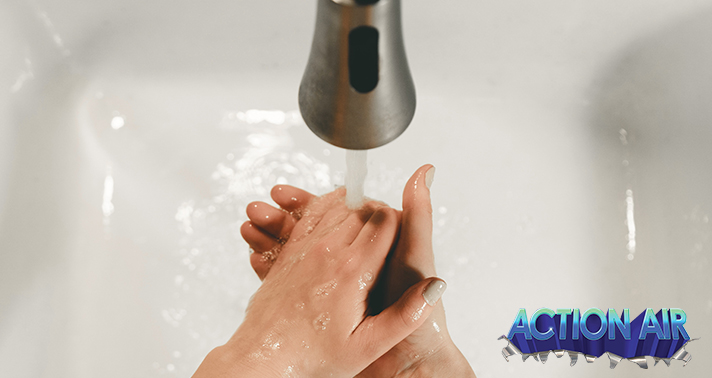The standard water softener will remove most of the calcium and magnesium from your tap water (the elements that leave a residue on surfaces and skin). A water softener will also remove up to 10 ppm (parts per million) of iron and manganese, which also contribute to the “hardness” of the water coming through your plumbing. While hard water itself is not a health hazard, it can eventually cause problems with your plumbing and fixtures. The elements in hard water promote scaling, which is the collection of minerals that eventually form a hard residue called lime scale. Here are five signs you need a water softener.
1. You notice scale deposits on your fixtures
In the event that you have scale, you probably have hard water. Mineral deposits can form on teapots and coffee pots — and they can also develop inside your plumbing and connecting fixtures. Lime scale can make your faucets, shower heads and other water fixtures less effective. It can block water flow and leave an unattractive hard residue on fixtures.
Scale, or “limescale,” is a hard, white substance comprised of calcium and magnesium bicarbonate. These minerals are what create the white crusty substance that forms on certain devices that distribute water. Water softeners can help with eradicating the problem.
2. Dry skin and hair
Hard water can result in dry, irritated skin and rough hair. The calcium and magnesium in the water are resistant to soap and shampoo; leaving an invisible residue difficult to remove. What happens is that the water on your skin doesn’t nourish it — it just dries it out. The minerals in the water cling to skin and hair, blocking pores and causing irritation and rashes. They also discolor skin the way that glass will sometimes discolor in the dishwasher.
3. Dull and rough clothing
Noticing that your clothes and bedsheets now look dull is an indication of hard water. They may feel scratchy or rough and be difficult to wash as the minerals create an invisible barrier on the fabric.
One thing you can do to diminish the problems that come from having hard water is to get a high efficiency front loading washing machine. These machines use less water and work well with water softening conditioners. You can also add vinegar to the wash cycle, which can minimize the hardness.
4. Stains in sinks and bathtubs
Any stains left from mineral buildup on porcelain surfaces are an indication of hard water. These stains form when faucet water lingers, leaving a calcium and magnesium film. Similar to the abrasive buildup on the edge of plumbing fixtures but thinner, these stain rings are difficult to remove. A water softener can help stop the unsightly buildup, which can eventually harm porcelain and metal surfaces.
5. Constant plumbing repairs
Steel plumbing can be compromised by the buildup of limescale. The flow of water can also be slowed by this buildup as well. The slower the water travels through your plumbing, the faster the limescale builds. If you are constantly experiencing leaks or problems with your plumbing, it might be because of hard water issues. A professional plumber can help determine whether or not you are dealing with hard water – and then offer a variety of softening solutions.
Have you noticed these signs you need a water softener? Contact the plumbing specialists at Action Air today! Call 317-451-4371 for a hard water assessment today!











